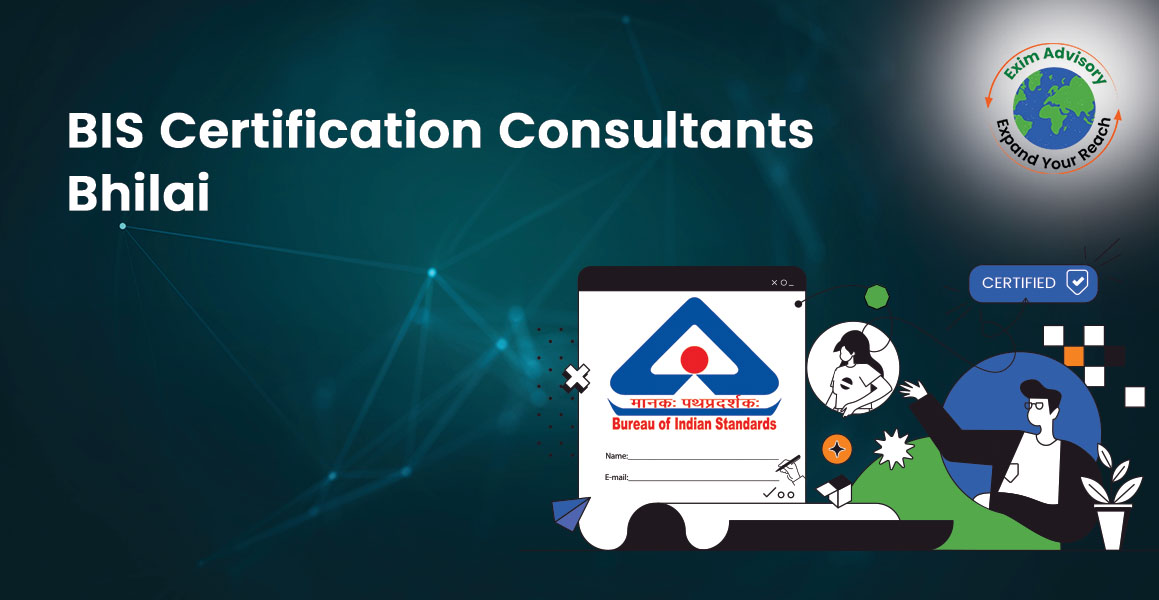
In Bhilai, ensuring high-quality product standards is critical for businesses aiming to secure consumer trust and comply with national regulations. BIS certification confirms that products meet rigorous quality and safety benchmarks, making it essential for manufacturers and service providers in the region. Collaborating with BIS certification consultants in Bhilai helps simplify the certification process, ensuring smooth compliance and enhancing your brand’s reputation.
What Is BIS Certification?
The Bureau of Indian Standards (BIS) is the national authority responsible for establishing quality benchmarks, standardizing products, and certifying their safety across India. BIS certification is the process through which a product is validated against defined Indian standards, ensuring its quality, safety, and reliability for consumers. A product that carries the BIS mark is recognized for meeting stringent standards, an important requirement for both mandatory and voluntary certification programs.
Key Areas of BIS Certification
Understanding the core components of BIS certification is crucial for preparing your business for compliance:
- Product Testing: In-depth testing of products to ensure they meet the prescribed Indian standards.
- Documentation Review: A thorough examination of essential documents, including details on manufacturing processes and quality control systems.
- Factory Inspection: On-site evaluations to verify that production facilities adhere to BIS standards.
- Certification Issuance: The formal approval and issuance of the BIS license, allowing products to display the BIS mark.
- Surveillance: Continuous monitoring and periodic audits to maintain ongoing compliance with quality standards.
Benefits of BIS Certification
Achieving BIS certification brings a range of advantages:
- Consumer Confidence: Products that bear the BIS mark instill trust in consumers by guaranteeing quality and safety.
- Market Accessibility: Certification is necessary for specific products, allowing legal access to broader markets.
- Enhanced Brand Image: Improves your brand’s credibility and reputation in a competitive landscape.
- Competitive Advantage: Sets your products apart from non-certified ones, potentially increasing your market share.
- Regulatory Compliance: Ensures that products consistently adhere to national standards, minimizing legal risks.
Industries Covered Under BIS Certification in Bhilai
Bhilai, known for its industrial prowess, has a variety of sectors that benefit significantly from BIS certification:
- Metallurgy and Steel: Ensuring that steel and metal products meet strict quality and safety norms, which is vital for the region's prominent steel industry.
- Engineering Components: Certification of machine parts and engineering components to maintain high operational standards.
- Electrical Equipment: Verification of electrical devices and components for safety and efficiency.
- Automotive Parts: Ensuring that automotive components and accessories conform to stringent quality standards.
- Industrial Machinery: Standardizing the quality of machinery and equipment used in various manufacturing processes.
How Does BIS Certification Work?
The BIS certification process is structured and transparent, ensuring clarity at every step:
- Application Submission: Begin by submitting the application along with all the necessary documents and product samples.
- Product Testing: Your product samples are tested in BIS-recognized laboratories to verify compliance.
- Factory Inspection: BIS officials perform an on-site inspection of your manufacturing facility to assess adherence to standards.
- Certification Decision: Based on the testing results and inspection reports, BIS grants the certification.
- Marking: Once certified, products can display the BIS mark, indicating their compliance with established standards.
What Documents Are Required for BIS Certification?
A complete and accurate set of documents is vital for a smooth certification process:
- Application Form: A fully completed form specific to the product category.
- Business Registration Proof: Documents such as GST registration or incorporation certificates.
- Product Information: Detailed specifications, user manuals, and technical documentation of the product.
- Test Reports: Laboratory reports from BIS-recognized facilities confirming product compliance.
- Quality Control Records: Documentation outlining the quality management systems in place.
Fee Structure for BIS Certification
Understanding the fee components helps in planning your budget effectively:
- Application Fee: A fee payable at the time of submitting your application.
- Testing Fee: Charges incurred for the laboratory testing of product samples.
- Inspection Fee: Costs associated with on-site inspections by BIS officials.
- License Fee: A fee charged upon the issuance of the BIS certification.
- Renewal Fee: Recurring charges for the periodic renewal of the certification to ensure continued compliance.
Note: Specific fee amounts may vary based on the product category and other influencing factors.
Challenges and Solutions
Businesses may face various challenges during the BIS certification process, which can be addressed with effective strategies:
- Complex Procedures: Navigating the detailed certification process can seem overwhelming.
Solution: Engage knowledgeable consultants to guide you through every stage. - Documentation Errors: Incomplete or inaccurate documentation can lead to delays.
Solution: Ensure thorough preparation and careful review of all required documents. - Sustaining Compliance: Maintaining continuous adherence to standards over time can be challenging.
Solution: Implement robust quality management systems and conduct regular internal audits. - Cost Considerations: The financial aspects of certification might be a hurdle for smaller enterprises.
Solution: Plan your budget carefully and explore available financial support or subsidy options.